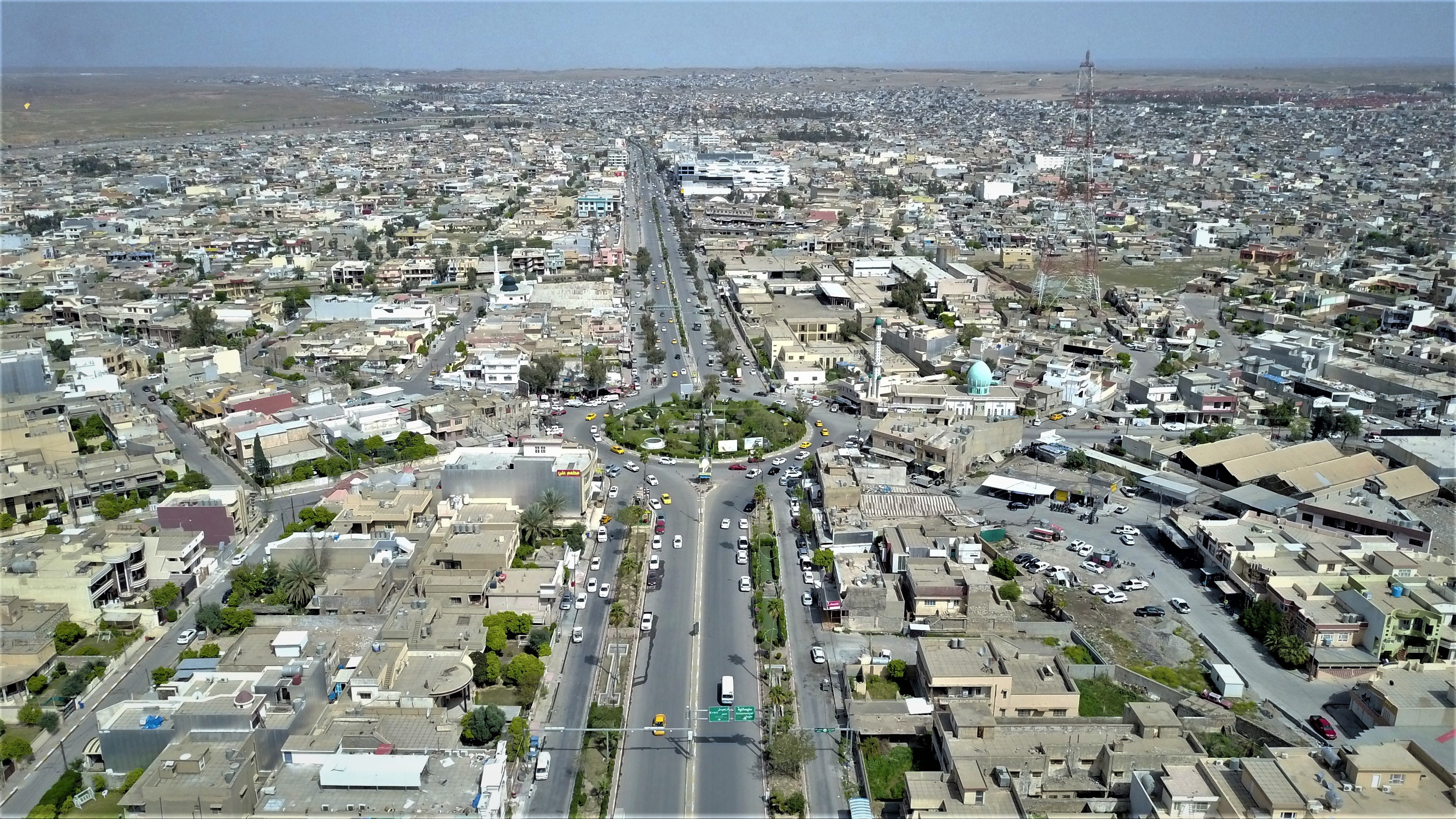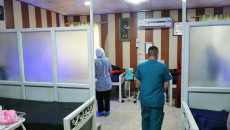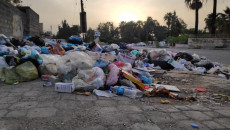The efforts spent in the last ten years by Kirkuk administration to boost greenery in the city have sharply failed as greenery is diminishing due to lack of adequate budget for irrigation and maintenance, making the environment of Kirkuk dusty and untidy.
End of 2010, local officials of Kirkuk municipality, in charge of public services such as greenery maintenance and garbage collection, have told KirkukNow they will riase rate of greenery. In 2014, they declared their plan to surround Kirkuk with a green belt to contain dust.
Years following these plans and efforts, the current rate of greenery is only 2% while back in 2017 it was double.
Sarwar Hussein, a resident of Piryadi neighborhood of Kirkuk, has planted several trees of Mandarin and fig in his small garden at home. Hussein believes that everybody should plant trees at home and not wait for the authorities.
“greening and tidiness is not the duty of one or two persons, everybody and the government together should try for it,” Hussein believes.
“greening and tidiness is not the duty of one or two persons, everybody and the government together should try for it,” Hussein believes.
There are bout 184 public gardens in Kirkuk few of them are several donums, others are smaller. Besides, there are 81 medians whose lengths range from 1-5 km where trees are planted yet all about to dry out.
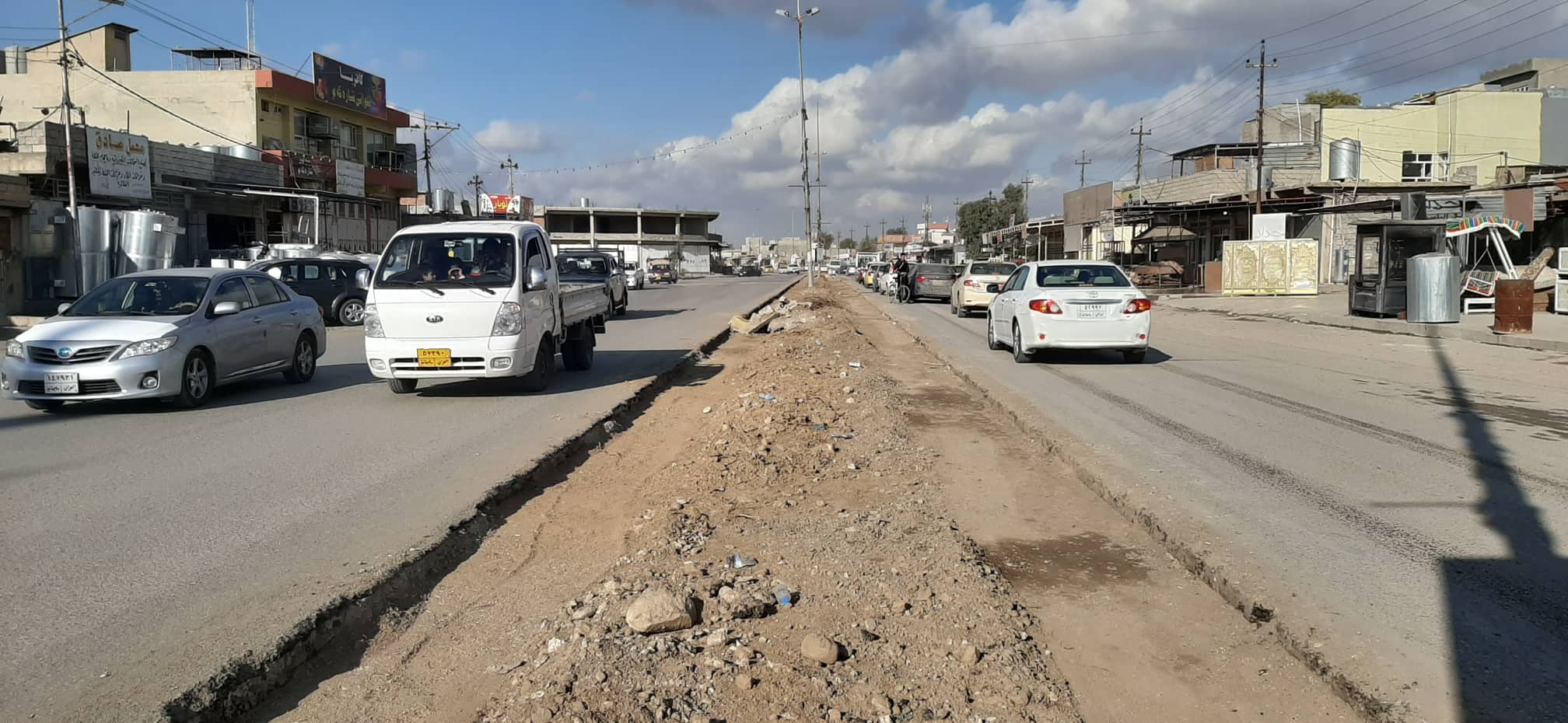
Kirkuk April 2020- Medians in Panja Ali popular neighborhood ploughed for greening it had never seen. Photo by Soran Mohammed.
Local authorities blame absence of proper human and material resources to administer this public service alike others like education, healthcare and waste collection.
Faraidoun Adel, head of Kirkuk municipality, said they do not have enough staff to keep the greenery in Kirkuk. Adel said they have only 46 workers for irrigation and maintenance while they need more than 1,000 for this task.
“Our staff are unable to serve all of it. We cannot maintain the greenery in Kirkuk so it is diminishing.”
“Our staff are unable to serve all of it. We cannot maintain the greenery in Kirkuk so it is diminishing.”
The oil rich city of Kirkuk, Iraq's second largest oil reserves, is ethnically a mixed province of Kurds, Sunni and Shiite Arabs, and Turkmen. It has long been at the center of disputes between Baghdad and the autonomous Kurdistan Regional Government KRG.
Kurds, whom controlled Kirkuk till 2017 when the so-called Islamic State ISIS was ousted wanted Kirkuk, 238 kilometers north of Baghdad, to become part of the Kurdistan region, which has been opposed by the Arab and Turkmen populations.
Article 140 of the Iraqi constitution in 2005 outlined a road map for disputed territories calling for normalization, census and referendum to determine its administration all in two years but only part of the first stage has been implemented up to the present.
In the last few years, several on governmental organizations NGO distributed plants in a campaign to expand green spaces. Kokar NGO in the last three years have distributed minimum 20,000 plants to people in order to be planted on sidewalks and medians yet the challenge is irrigation and maintenance by the municipality as temperature exceeds 45-50 at the blazing summer.
Mohammed Abdul-Khaliq, media manager of Kokar NGO, said their third campaign is distribution of Albiza plant but “if the municipality can’t irrigate gardens and parks so how it can cooperate with us?”
“if the municipality can’t irrigate gardens and parks so how it can cooperate with us?”
Abdul-Khaliq is consented that 60% of their plants distributed in their first two campaigns are still green and eager for more green spaces.
“This is not enough. We all have to and the municipality in particular try to raise green spaces because environment in Kirkuk is under big threat.”
Kirkuk through its five oil wells has produced three million barrels last March generating $195 million American Dollars for Iraq's national revenues while in February it pumped 3.8 for $213M, Iraqi ministry of oil said.
Currently Kirkuk is under control of Baghdad since 2017 with local police downtown while Iraqi army and pro-Shiite militia Popular Mobilization Forces PMF known as Hashid aal-Sha’abi deployed at the outskirts.
The political tension between Baghdad and Erbil left Kirkuk and the disputed territories made the province miss the basic public services. Garbage collection is one of the main challenges for people in their daily life in the last years in particular. Power shortage is blamed for low supply by Baghdad compared to the high demand by people for consumption.
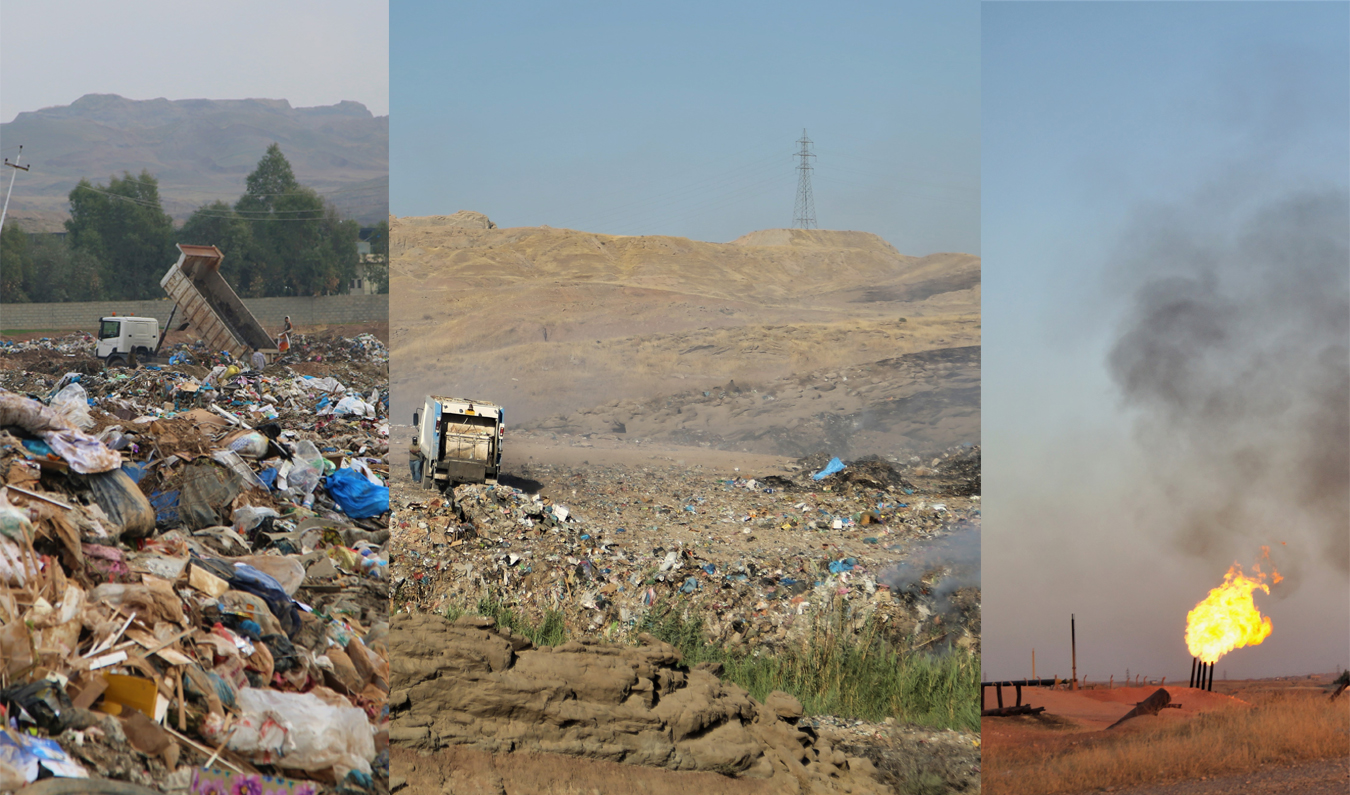
Kirkuk suffers from garbage piles since last year as the service subsidized by the state is limited. Photo by Karwan Salihi.
Ismael Abdullah, a resident of Hurria neighborhood says he lives in this area since 2010 yet no greenery can be seen. “It looks like a desert. IN summer, all the blocs are dusty and odor is everywhere as the cleaning campaigns are absent.”
Industrial zones in Kirkuk increase the pollution of the atmosphere. Tens of oil wells and factories generate poisonous gas to the sky of the city.
Shikofa Mohammed, environment expert and activist, says all the three components of Kirkuk, water, soil and air are hot and dry.
“The smoke by oil and gas factories concentrate in the sky. Most of the factories of concrete bloc, cement and gypsum operate regardless of environmental conditions and filtration. Altogether make current environment in Kirkuk improper for life.”
“The smoke by oil and gas factories concentrate in the sky. Most of the factories of concrete bloc, cement and gypsum operate regardless of environmental conditions and filtration. Altogether make current environment in Kirkuk improper for life.”
Lately, Kirkuk municipality in charge of waste collection apologized for Kirkuk people as it has come to stop its services from middle of April due to lack of adequate funding.
Piles of garbage have mounted all over the northern oil-rich city of Kirkuk which suffers from absence of regular garbage collection since last year. Kirkuk municipality says it was collecting 1200 tons on daily bases now came down to only 200 tons. Last February two campaigns were funded to clean 70,000 tons.
Mohammed says Kirkuk has large spaces for greening yet most of it are disputed. “Currently green areas are only 2% which is so little.” The international standard for urban greenery is 15%.
Kirkuk April 2020- Garbage has piled all over Kirkuk for absence of regular collection. Photo by Goran Baban.
Despite the lack of budget for maintenance of current green spaces, people blame the local authorities for lack of planning.
Mohammed says there are two public plantations in Kirkluk whom grow plants whom do not give it to people for free in order to widen the green spaces.
“There is no penalty for those whom cut trees or break it. Besides, there is no cooperation with NGOs whom protect the environment just like the KRG.”
The greenery is to diminish if plants are not watered properly, people and the NGOs are afraid of an environmental threat, she adds.

